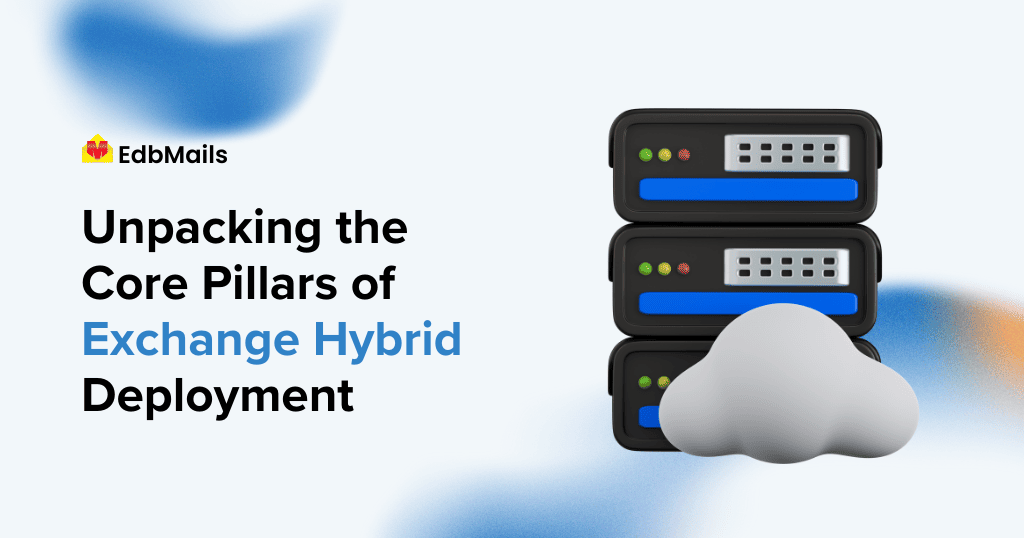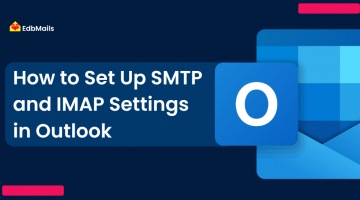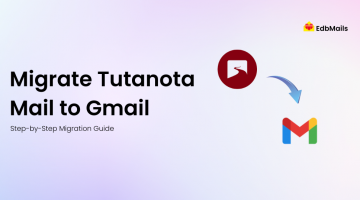When organizations plan to move from an on-premises Exchange Server to Exchange Online (Office 365), they can choose from several migration methods. Among these, a Hybrid deployment is one of the most widely used, especially for medium and large enterprises.

The popularity of Hybrid deployments comes from the flexibility they provide. By allowing coexistence between on-premises Exchange and Office 365, businesses can migrate mailboxes gradually, maintain smooth mail flow, and offer users a seamless transition experience. However, configuring a Hybrid setup is not a simple task; it requires careful planning and multiple components working together.
In this article, we’ll explore the core components of a Hybrid deployment, how they interact, and why many organizations prefer using professional migration tools like EdbMails Exchange Migration for a simpler and more efficient migration.
1. Exchange Online (Office 365)
The foundation of a Hybrid deployment is Exchange Online, part of the Microsoft 365 suite. Organizations must first evaluate the different subscription plans available and choose the one that best suits their needs.
Every user being migrated to the cloud must have a valid Office 365 license assigned. The chosen plan determines available features, storage limits, and security options. Ensuring the right licensing is critical for a successful migration and long-term management.
2. Exchange Server (On-Premises)
To achieve coexistence, an on-premises Exchange Server must be running in your environment. At least one server should be configured with the Mailbox role, which handles user mailboxes and email delivery.
- In Exchange Server 2013 and later, the Mailbox server role also includes client access functionality.
- In Exchange 2010 and earlier, you must have both a Mailbox server and a Client Access Server (CAS).
Maintaining version compatibility is crucial. A mismatch between your Exchange Server version and Office 365 can cause migration or coexistence issues.
3. Azure AD Connect
Azure Active Directory Connect (Azure AD Connect) is essential for synchronizing on-premises Active Directory with Office 365. It allows users to sign in with the same credentials both on-premises and in the cloud, providing a single sign-on (SSO) experience.
Key benefits of Azure AD Connect include:
- Directory synchronization for a consistent identity across environments.
- Password hash synchronization or federation for authentication.
- A unified Global Address List (GAL) for seamless communication between on-premises and cloud users.
Without Azure AD Connect, managing user identities across both environments can quickly become complicated and error-prone.
4. Hybrid Configuration Wizard (HCW)
The Hybrid Configuration Wizard (HCW) is the primary tool for setting up and managing hybrid deployments. It simplifies the configuration by automatically handling much of the complex work behind the scenes.
The HCW helps you configure:
- Mail flow between Exchange Server and Office 365.
- Autodiscover services for Outlook clients.
- Calendar sharing and free/busy lookups across environments.
- Secure authentication mechanisms for users.
Running the wizard ensures that your hybrid deployment is configured correctly and remains up to date with Microsoft’s latest best practices.
5. Authentication and Federation
Authentication is another critical component of hybrid deployments. Azure Active Directory serves as the central authentication hub, ensuring secure communication between Exchange on-premises and Exchange Online.
To enable this, the Hybrid Configuration Wizard establishes a federation trust using SSL certificates. This federation trust validates domain ownership and builds a secure bridge between different environments.
As a result, users can seamlessly access resources across both on-premises Exchange and Office 365 without constantly re-authenticating, making the coexistence experience smooth.
Challenges of Hybrid Deployment
While hybrid deployments provide flexibility, they also come with challenges that organizations must consider:
- Complex setup – Configuring servers, certificates, mail routing, and directory synchronization requires advanced expertise.
- Maintenance overhead – Admins must manage both environments simultaneously.
- Cost considerations – Running on-premises infrastructure alongside Office 365 adds expenses.
- Security risks – Any misconfiguration could expose sensitive data or disrupt mail flow.
These challenges often make hybrid deployment impractical for smaller organizations or those with limited IT resources.
A Simpler Alternative: Direct Exchange to Office 365 Migration with EdbMails
For many organizations, a full hybrid deployment may be more complex than necessary. Instead, using a professional migration tool like EdbMails Exchange Migration provides a faster, easier, and more secure option.
With EdbMails, you can:
- Directly migrate mailboxes from Exchange to Office 365 without Hybrid setup.
- Support all Exchange versions including 2007, 2010, 2013, 2016, and 2019.
- Perform incremental migration to avoid duplicates and reduce downtime.
- Map mailboxes automatically, saving time in large-scale migrations.
- Ensure secure migration with modern authentication (OAuth 2.0, TLS 1.2).
By simplifying the process, EdbMails eliminates the risks of hybrid complexity and allows organizations to complete migrations smoothly with minimal effort.
Conclusion
Hybrid deployments are a proven method for large-scale Exchange to Office 365 migrations, offering flexibility, coexistence, and a gradual transition path. However, they are complex, require ongoing maintenance, and may not be practical for every organization.
If you’re looking for a simpler alternative, EdbMails Exchange Migration provides a direct, secure, and cost-effective solution. It reduces downtime, avoids complicated hybrid setups, and ensures a seamless migration experience.
By understanding the components of hybrid deployment and exploring modern migration tools, your organization can make the right choice to achieve a successful transition to Office 365.



